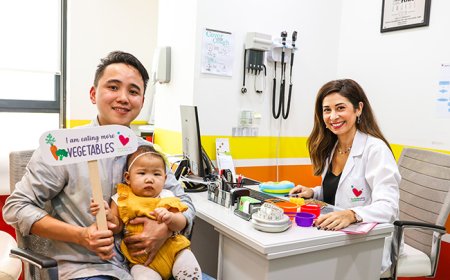Why Early Occupational Therapy for Kids Makes a Lasting Difference

Every child deserves the chance to grow with confidence, independence, and joy in their everyday life. But when a child struggles with basic skills like holding a pencil, getting dressed, or concentrating at school it can cause frustration for both them and their family. Thats where occupational therapy for kids can make a real and lasting difference.
Early intervention through occupational therapy doesnt just support children in the moment it equips them with essential life skills that grow with them. This article explains how early OT can transform your childs development and why its worth considering sooner rather than later.
What Is Occupational Therapy for Kids?
Understanding the Role of OT
Occupational therapy for kids focuses on helping children build the physical, cognitive, emotional, and social skills they need to participate in everyday activities. These activities might include:
-
Self-care tasks (e.g., dressing, toileting, brushing teeth)
-
School-based skills (e.g., handwriting, focus, sitting still)
-
Play and social interactions
-
Sensory processing and regulation
Occupational therapists work closely with families to create personalised strategies and routines that support development in ways that feel natural, practical, and fun.
Why Early Intervention Matters
The Early Years Are Critical
From birth to age seven, a childs brain is especially adaptable. During this time, theyre learning how to move, think, feel, and interact with the world. Addressing delays or challenges during this window can have a significant long-term impact.
When issues are left unaddressed, they can affect a childs ability to engage socially, perform at school, or build independence all of which can impact self-esteem and emotional wellbeing.
Preventing Bigger Challenges Later
What starts as mild difficulty with coordination or attention can snowball into academic struggles or behavioural concerns if not supported early. Early occupational therapy for kids can help:
-
Strengthen core skills before school starts
-
Support smoother transitions into formal education
-
Reduce frustration and boost confidence
Signs Your Child May Benefit from OT
Its not always easy to tell if your child needs extra support. Here are some signs that may indicate a need for occupational therapy:
Motor Skills
-
Trouble holding cutlery, crayons, or pencils
-
Difficulty with tasks like doing up buttons or zips
-
Avoidance of writing or drawing activities
Sensory Processing
-
Overreacts to noise, touch, or lights
-
Seeks excessive movement (spinning, jumping)
-
Becomes easily overwhelmed in busy environments
Emotional and Behavioural
-
Frequent meltdowns over simple tasks
-
Difficulty managing frustration or transitions
-
Struggles to settle or concentrate in group settings
If your child is consistently finding daily activities challenging, early OT support can provide a clear path forward.
How Occupational Therapy Sessions Work
Play-Based and Goal-Oriented
Occupational therapists use fun, play-based activities to engage children while targeting specific developmental goals. Sessions may include:
-
Games that build hand strength and coordination
-
Sensory play to improve regulation
-
Routines that foster independence and confidence
Each childs plan is tailored to their strengths and challenges, ensuring therapy feels supportive and empowering rather than clinical or overwhelming.
Benefits of Early Occupational Therapy for Kids
1. Improved Confidence and Independence
Children learn to do more for themselves whether its putting on their shoes or following a classroom routine. This builds a strong sense of achievement and confidence.
2. Stronger School Readiness
OT helps prepare children for the structure and demands of school life. From handwriting to focus to following instructions, early therapy gives kids a head start.
3. Better Emotional Regulation
Many children benefit from learning how to manage big emotions. OT can support self-soothing strategies, reduce meltdowns, and increase resilience.
4. Support for Parents and Carers
Occupational therapy also empowers parents. Therapists offer practical tools, advice, and reassurance, helping you support your childs development with greater ease at home.
Working with a Local Therapist
If youre considering occupational therapy for kids, connecting with a local therapist can make sessions more accessible and relevant. A therapist who understands your community, school systems, and lifestyle can offer guidance thats truly practical for your family.
Ask your GP, teacher, or trusted health professional for a recommendation, or explore clinics in your area that specialise in paediatric occupational therapy.
Early occupational therapy for kids isnt about fixing children its about giving them the tools to succeed in their own unique way. Whether your child needs help with motor skills, emotional regulation, or everyday routines, early support can create a strong foundation for growth and lifelong success.




































